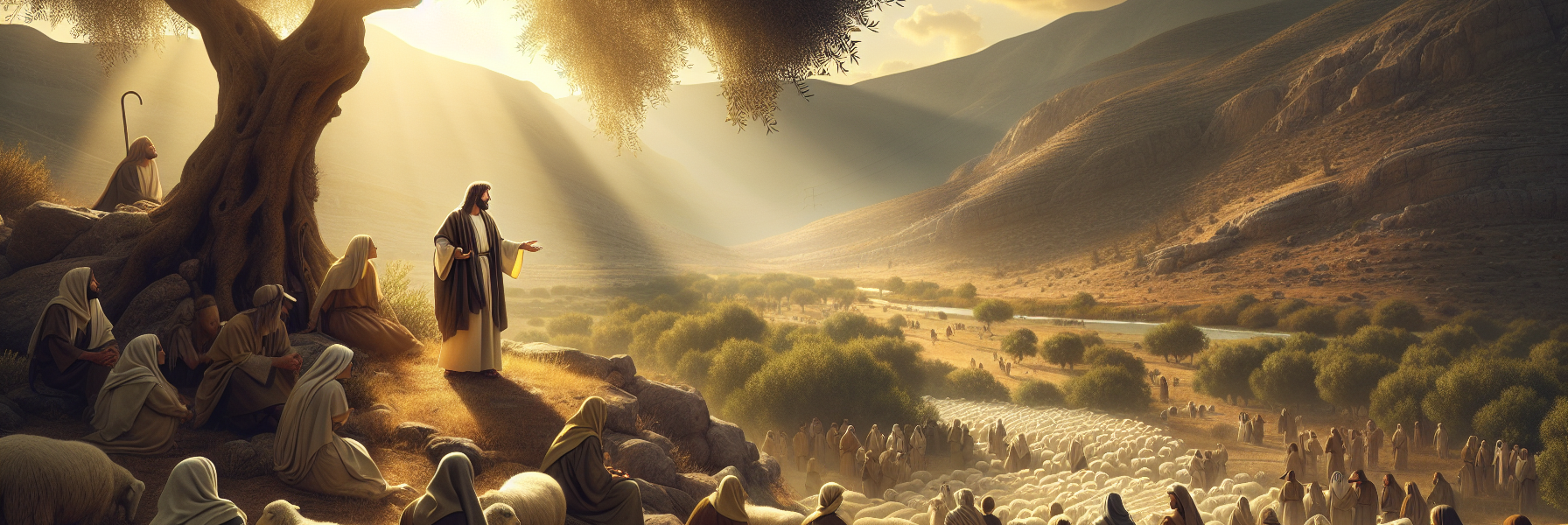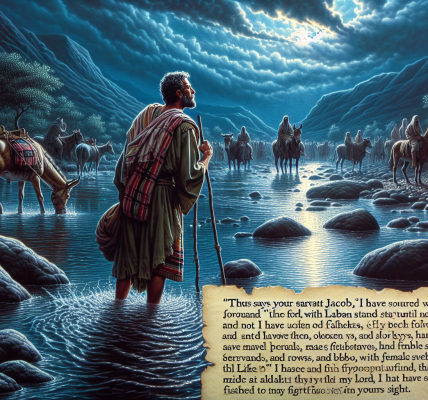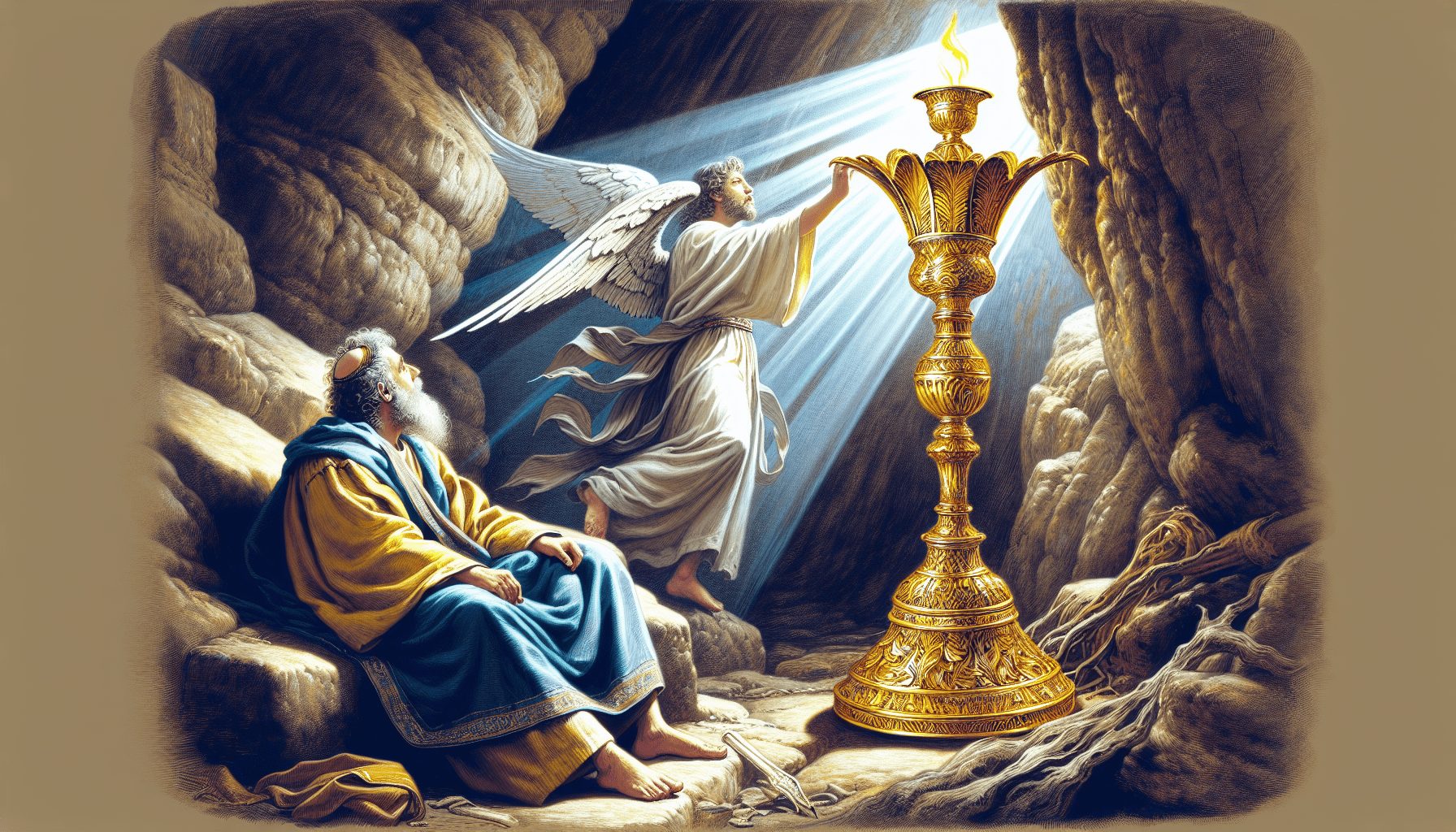**The Good Shepherd and His Flock**
The golden sun hung low over the Judean hills, casting long shadows across the rocky terrain where flocks of sheep grazed under the watchful eyes of their shepherds. The air was thick with the scent of wild thyme and the distant murmur of the Jordan River. It was here, in the quiet pastures near Jerusalem, that Jesus gathered His disciples and a crowd of eager listeners to teach them a parable so rich in meaning that it would echo through the ages.
Standing beneath the broad branches of an ancient olive tree, Jesus looked upon the faces before Him—some curious, some skeptical, but all drawn to the authority in His voice. He began, *”Truly, truly, I say to you, he who does not enter the sheepfold by the door but climbs in by another way, that man is a thief and a robber.”*
A murmur rippled through the crowd. Shepherds in the group nodded knowingly, for they understood well the dangers of thieves who would scale the walls of the sheepfold under cover of darkness to steal what was not theirs. But Jesus was speaking of something deeper.
*”But he who enters by the door is the shepherd of the sheep,”* He continued, His voice steady and warm. *”To him the gatekeeper opens. The sheep hear his voice, and he calls his own sheep by name and leads them out.”*
A young shepherd boy at the edge of the crowd shifted, his calloused fingers gripping his staff. He knew his own sheep by name—gentle Leah, stubborn Asher, swift-footed Miriam. He called, and they followed, for they recognized his voice above all others.
Jesus smiled, seeing the understanding in their eyes. *”When he has brought out all his own, he goes before them, and the sheep follow him, for they know his voice. A stranger they will not follow, but they will flee from him, for they do not know the voice of strangers.”*
The Pharisees, cloaked in their fine robes, exchanged uneasy glances. They sensed the weight of His words, the indictment against false leaders who cared nothing for the flock. But Jesus pressed on, His gaze piercing the hearts of all who listened.
*”I am the door of the sheep,”* He declared. *”All who came before Me are thieves and robbers, but the sheep did not listen to them. I am the door. If anyone enters by Me, he will be saved and will go in and out and find pasture.”*
A gasp rose from some in the crowd. Never had a man spoken with such boldness, claiming to be the very gateway to salvation. Yet there was no arrogance in His tone—only truth, radiant and unshaken.
*”The thief comes only to steal and kill and destroy,”* Jesus said, His voice hardening with warning. *”I came that they may have life, and have it abundantly.”*
Then, with a tenderness that brought tears to the eyes of the weary and broken, He spoke the words that would forever define His mission: *”I am the good shepherd. The good shepherd lays down His life for the sheep.”*
The disciples exchanged glances, their hearts stirred yet troubled. They did not yet fully grasp that He spoke of the cross, of the sacrifice He would soon make.
*”He who is a hired hand and not a shepherd, who does not own the sheep, sees the wolf coming and leaves the sheep and flees,”* Jesus said, His voice rising with passion. *”The wolf snatches them and scatters them. He flees because he is a hired hand and cares nothing for the sheep.”*
The contrast was clear—between the false shepherds who ruled for power and the True Shepherd who would die for love.
*”I am the good shepherd,”* Jesus repeated. *”I know My own, and My own know Me, just as the Father knows Me and I know the Father. And I lay down My life for the sheep.”*
Silence fell upon the crowd, heavy with awe. Then He spoke of a mystery beyond their comprehension: *”I have other sheep that are not of this fold. I must bring them also, and they will listen to My voice. So there will be one flock, one shepherd.”*
The Gentiles, the nations beyond Israel—they too would hear His call. The disciples would later understand, but for now, they marveled.
Then came the most astonishing declaration of all: *”For this reason the Father loves Me, because I lay down My life that I may take it up again. No one takes it from Me, but I lay it down of My own accord. I have authority to lay it down, and I have authority to take it up again. This charge I have received from My Father.”*
The crowd erupted in whispers. Some accused Him of blasphemy. Others, their hearts burning within them, believed.
As the sun dipped below the horizon, painting the sky in hues of crimson and gold, Jesus stood firm, His words settling like dew upon the souls of those who would receive them. He was the Good Shepherd—the One who would walk through the valley of the shadow of death for His sheep. And though the path ahead was fraught with suffering, His promise remained: *”My sheep hear My voice, and I know them, and they follow Me. I give them eternal life, and they will never perish, and no one will snatch them out of My hand.”*
And with that, the True Shepherd turned His face toward Jerusalem, where love would soon meet the cross, and the flock would be gathered forever.




